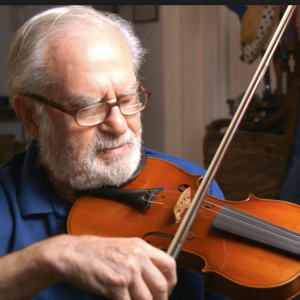January 26th, 2017 Newsletter

January 26th, 2017 Newsletter
January 26, 2017
Good morning and welcome to agebuzz… Headlining today’s topics:
-Civil Action: Finding A Lawyer Who Specializes In Elder Law
-Talk Sense: Worksheets That Help You Talk With Your Doctor
-The Act of Caring: Who Takes Care Of The Caregiver
-London Calling: Beautiful Products For Better Aging
-Every Minute Counts: A View, And Counterview, of Alzheimer’s Disease
-Redux: An Academy Award Nomination for Joe’s Violin
-The Last Word
Civil Action: Finding A Lawyer Who Specializes In Elder Law: Just like it makes sense for seniors to seek out geriatricians for their medical care, it also makes sense for older people to find a lawyer who specializes in issues of aging. As you age, legal issues may arise that are specifically related to changes in your physical or mental health, housing, finances or property. Lawyers who specialize in elder law tend to take a more holistic view of legal problems that surface, and they often work with such other professionals as social workers and geriatric care managers to craft the best solution, whether it’s a legal solution or just something more practical. The National Academy of Elder Law Attorneys (NAELA) has a website aimed at both consumers and attorneys. Through this website you can find not only a local attorney who specializes in aging matters but also descriptions of some of the legal issues that may arise as you or your loved ones grow older. Check out the NAELA website Here.
Talk Sense: Worksheets That Help You Talk With Your Doctor: It’s not uncommon to feel anxious or rushed in the presence of a doctor. You may feel nervous about whatever is bothering you or perhaps you feel intimidated by the setting or with the knowledge that your time with the physician is limited. No matter the reason, it always makes sense to prepare your questions and concerns in advance so that you can talk sensibly and efficiently and get the most out of the visit. The National Institute on Aging(NIA) has an on-line guide to help older people speak with their doctor. As a part of the guide, they offer specific worksheets to organize your thoughts and jot down your issues. Take a look at these NIA worksheets, and the more comprehensive guide, Here.
The Act of Caring: Who Takes Care Of The Caregiver: Professional health care providers don’t always acknowledge the enormous contributions that unpaid family caregivers provide to patients, especially as they grow older. So the recent New York Times piece by Dr. Dhruv Khullar, in which he comes to recognize the value of, and burden on, family caregivers, is an important public reminder of the need to better support and include family caregivers as critical players in our health care system. But statements alone are insufficient to support the essential role of family caregivers. They need as much help as they can get. One excellent source of help is the United Hospital Fund’s Next Step in Care website. The website offers a comprehensive range of resources, advice, links, and videos to assist caregivers in all of the roles they undertake, and especially as their loved ones transition from one setting to another. The website also features information in multiple languages. So to all of you who are family caregivers, take good care and check in Here.
London Calling: Beautiful Products For Better Aging: Good design not only brings beauty and joy but can also allow for better functionality of an item and, in essence, better quality of life. When stereotypical images of aging are the impetus for design, products often focus on safety or passivity. However, when designers contemplate an active and engaged older lifestyle, they can design beautiful products that provide innovative and creative ways to grow older and better. Right now the Design Museum of London has a wonderful exhibit called “The New Old: Designing For Our Future Selves,” for which young designers were encouraged to think out of the box about style, functionality and enhancement as people grow older. The exhibit runs until mid-February and has garnered world-wide attention for its concept and creativity. Read about some of the items on display Here and visit the exhibit website Here.
Every Minute Counts: A View, And Counterview, of Alzheimer’s Disease: The word is out: Last night, on public television, an urgent and alarming documentary on Alzheimer’s Disease premiered. Part of a broader focus to attract public attention and resources to the fight against Alzheimer’s, the documentary, “Every Minute Counts,” will be available to stream online and has its own website that includes events and resources to amplify and expand on the film’s message. Overall, this film underscores the urgency not only for patients and families, but for society at large, to devote resources to finding medical breakthroughs for Alzheimer’s. However, there is a counter-narrative to the dismal and devastating diagnosis of Alzheimer’s, and other aging advocates want to publicize that. The organization Changing Aging strongly objects to much of this documentary, with special concern for the fear and alarm it strikes without also recognizing how to live hopefully and in a dignified way with the illness. To better understand both sides of the debate, Click Here and Here.
Redux: An Academy Award Nomination for Joe’s Violin: You may remember that back in September, agebuzz featured a story on “Joe’s Violin,” the poignant documentary telling the true story of an elderly Holocaust survivor who donates his cherished violin to a young girl in the Bronx. The film garnered many awards at film festivals around the country and this week, it received an Academy Award nomination for Best Documentary Short Subject. You can now watch this heartwarming film online, so get your popcorn and check out this award winning film Here.
THE LAST WORD: “Nobody grows old merely by living a number of years. We grow old by deserting our ideals. Years may wrinkle the skin, but to give up enthusiasm wrinkles the soul.” Samuel Ullman







